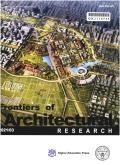Stakeholder satisfaction is an important factor in determining the success of urban heritage conservation projects. This research attempts to propose a model for assessing stakeholder satisfaction and project significant factors that need to be considered when determining the performance of a conservation project, taking the Thiruvananthapuram Fort Area, India as a case example. The study employed a mixed-method approach of using expert consultations, physical surveys, and statistical analysis in the development of the model. Factors influencing the outcome of an urban heritage conservation project were listed from the literature and further refined through expert discussions to be utilized for the stakeholder survey. A questionnaire survey is administered within a heritage-sensitive urban area to identify the present state of heritage buildings and the living conditions of the stakeholders pertaining to the six aspects that determine the outcome of an urban heritage conservation project. The overall satisfaction of the stakeholder group was modelled using ordinal logistic regression against the various factors to arrive at factors that positively and negatively influenced them. The model assessed that the satisfaction of the stakeholders who were a part of the historic site was highly influenced by their economic needs and the project's economic sustainability over other factors in the model. Urban economy consolidation, a known mechanism of improving an area's economic sustainability negatively affected the stakeholders' satisfaction. The results indicate that the factors under the social aspect were not significant determinants for the stakeholders of this urban heritage conservation project. The methodology developed in this study can aid researchers and planners in identifying factors determining the outcome of an urban heritage conservation project while planning for development within a heritage-sensitive urban area.


